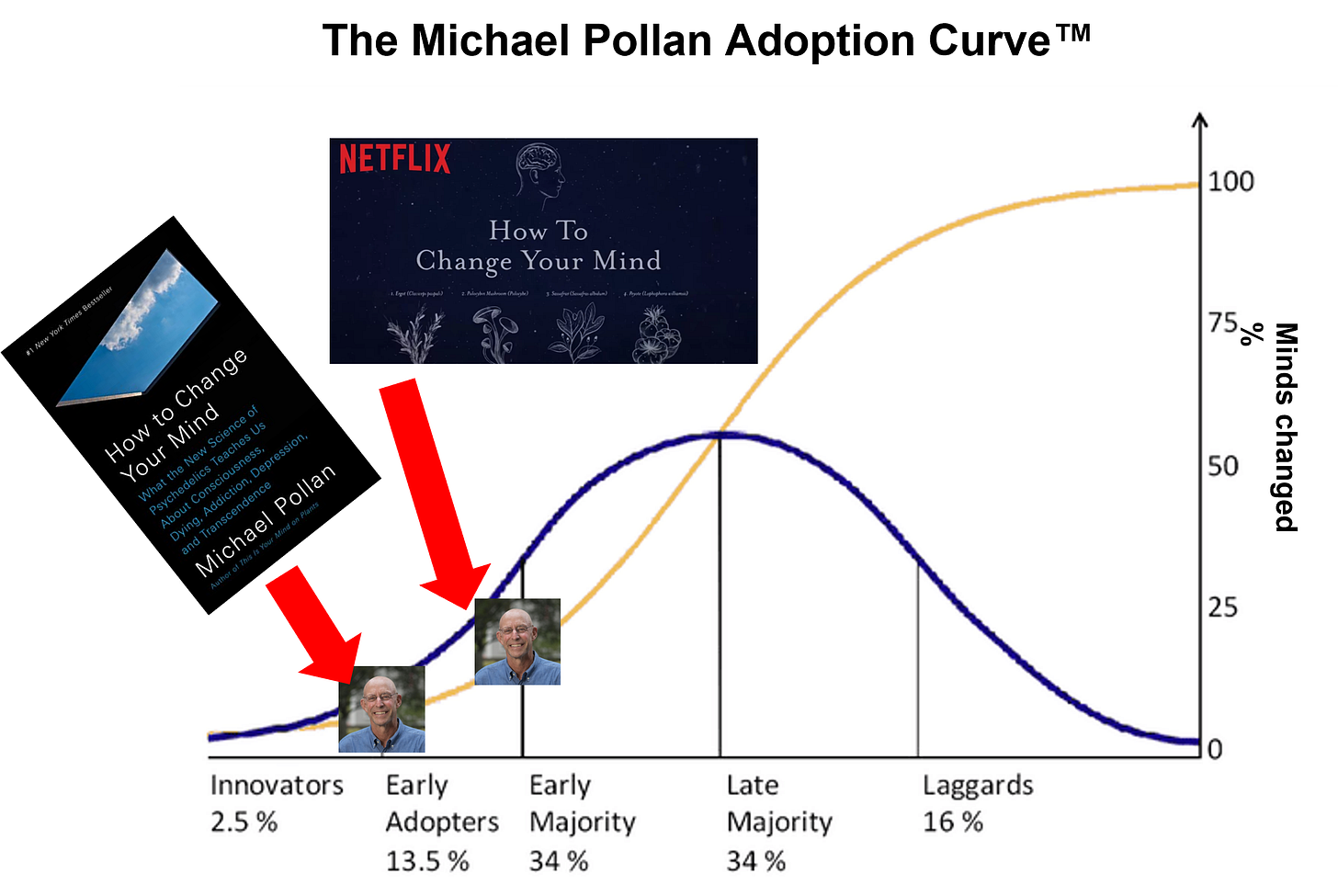With a little more than six-months under our belt, it is time to take a step back and take stock of where we are at and what to expect going forward.
First, ground covered.
We started this initiative in late-2021 to provide an outlet to discuss emerging and historical issues/ideas related to drug law/policy that came up in our other pursuits. Aside from commenting on current events, as practicing attorneys, we wanted an outlet to share some less-filtered prose, and in some cases, contribute ideas that may not align with the status quo, either on the traditional prohibitionist side or the psychedelic reformer side. And while we won’t hesitate to share opinions or try to persuade here—we have viewpoints—we also want to produce works predominantly rooted in our craft: the presentation of facts, evidence, history, textual analysis, and argument, as opposed to feelings or agenda driven puff pieces.
Since launching the newsletter, we’ve covered topics ranging from the opioid epidemic, psychedelic patents, cannabis reform, and other regulatory issues. Our promise is to go deep and wide. And we’ll continue to do that.
Why do this?
Next week, the docuseries for Michael Pollan’s book comes out. No doubt, many more individuals out there, including policy makers, will want to learn about these issues and a new wave of Pollanization will occur:
Intersecting with this Pollanization or “psychedelic renaissance” is an arguably a more important silent development that has nothing to do with research, journalism, or anything else except father time: a demographic shift. The generations that started, fought, and perpetuated the drug policies of old are starting to age out of positions of power.
Over the past decade—but particularly the last three years—many institutions and businesses have begun researching psychedelics and continued in earnest. Meanwhile, the opioid epidemic continues to accelerate, and cannabis reform continues to stall out. As new developments in drug policy and regulation accelerate, we expect the legal issues to accelerate too. And as new generations take over and make a new history, it is important not to forget the past. After all, “[t]he best prophet of the future is the past.”
Okay, enough bloviating. What’s next?
From me, I am working on my next essay on the Most Innovative Drug Company in the World. After that, expect several more installments—maybe up to 7 more—in the Psychedelic Patent Wars series, getting to the heart of the matter. Several other essays are in the works, including an exploration of antitrust issues with psychedelic pharma. Maybe a book review or two. Who knows?
Shane is working on a series exploring how the recent decision in Dobbs (i.e., the decision overturning Roe v. Wade), relates to broader issues with drug policy, such as the legal intricacies of federal preemption. For example, quick thought: can States ban misoprostol, an FDA drug approved for the prevention and treatment of NSAID-induced gastric ulcers in patients taking NSAIDs and at high risk for ulceration? Misoprostol is a WHO essential medicine…and is also shown to be effective alone for first-trimester medical abortions? And if the feds can do that, what does that federal power play mean for drug policy and regulation more generally?
In the meantime, while we work on generating more content, we are unveiling the On Drugs Library. This library will contain the fruits of document retrieval efforts. As mentioned, when we launched the newsletter, part of what we want to do here is obtain historical documents from archives and FOIA documents from agencies. Using subscription fees, we’ve sent out requests to archives and government agencies for documents relating to drug policy.
But we’re also practicing attorneys with full schedules. And we are starting to collect more documents than we have time to write stories on. So, we’re sharing them.
There is a lot of interesting stuff here that could be used for an original story or two, including the 1990s Federal Government medical marijuana program, documents from the NORML/ACT marijuana rescheduling efforts, the NIDA contracts with the University of Mississippi, and documents relating to the drafting of the CSA. More to come. I’ve built a small index in the library if you want to browse.
Finally, to reward subscribers who help us foot the bill for getting and sharing these documents, going forward, we will be generating more subscriber content on a semi-regular basis. Please share and/or subscribe if you want to support these efforts.





Matt, when you say 'federal preemption', are you referring to the return of non-delegation + major questions?